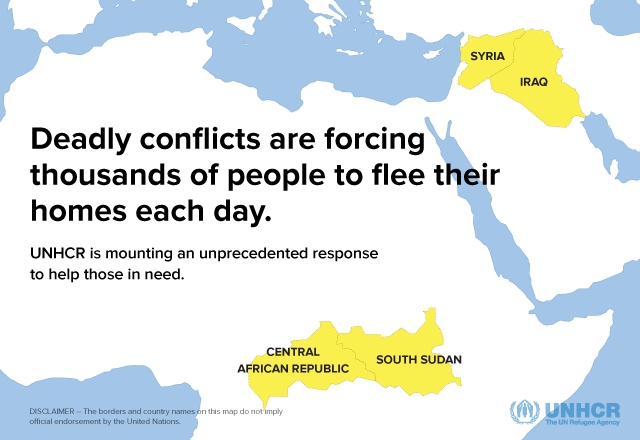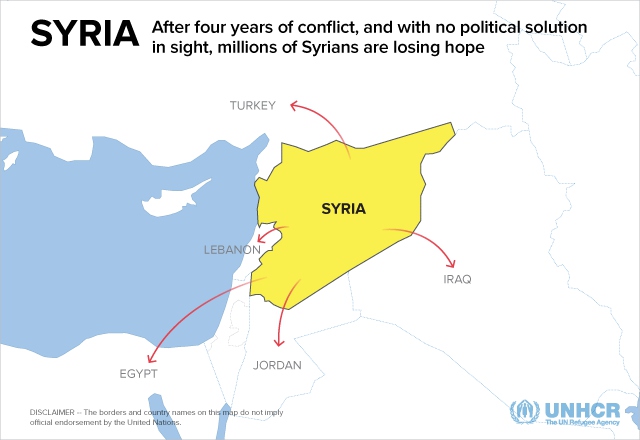Home > What We Do > Emergency Response
Emergency Response






Emergency Preparedness and Response
UNHCR is often faced with a sudden emergency requiring an immediate response - an eruption of fighting causing tens of thousands of people to flee their homes, perhaps, or a massive earthquake displacing hundreds of thousands. That means the agency must be able to rush aid and experts to the affected zone without delay. Providing fleeing civilians with emergency help is often the first step towards their long-term protection and rehabilitation.
To prepare for and respond to an emergency, UNHCR has assembled teams of people with a wide range of key skills who are ready for deployment anywhere in the world at a moment's notice. The agency has also created emergency stockpiles of non-food aid items in Copenhagen and Dubai to supplement local aid supplies in areas of need. We have established long-standing agreements with freight forwarders and logistics companies, and developed a global network of suppliers, specialist agencies and partners.
This means that at any given time, UNHCR has the capacity to respond to a new emergency impacting up to 500,000 people. The agency can also mobilize more than 300 trained personnel within 72 hours. These experts come from its Emergency Response Team (ERT) roster. UNHCR has also developed mechanisms for the immediate mobilization of financial resources to help meet the response to an emergency without delay.
To maintain this capacity and preparedness, UNHCR has developed training programmes that are held at regular intervals. They include the Workshop on Emergency Management, or WEM, which prepares all volunteers on UNHCR's ERT rosters. This weeklong exercise is held four times a year for up to 40 people and every effort is made to create the atmosphere of an actual emergency deployment. The main subjects include team-building, operations planning, financial and administrative systems, operational partnerships, communication and negotiation skills, security, coordination and information-sharing, telecommunications, and humanitarian protection.
UNHCR's eCentre in Tokyo, meanwhile, is helping improve emergency preparedness and response capabilities in the Asia-Pacific region through targeted training and other capacity-building measures. UNHCR also contributes to inter-agency initiatives to enhance early warning and preparedness.
UNHCR Handbook for Emergencies, Fourth Edition
A reference tool which serves to reinforce a common understanding among the many key actors in emergency situations.
UNHCR in Dubai: First Line Responder in Emergencies
Information brochure about UNHCR's Global Emergency Stockpile located in Dubai.
Coordinating Assistance
The refugee agency provides clarity about how it works in the field.




